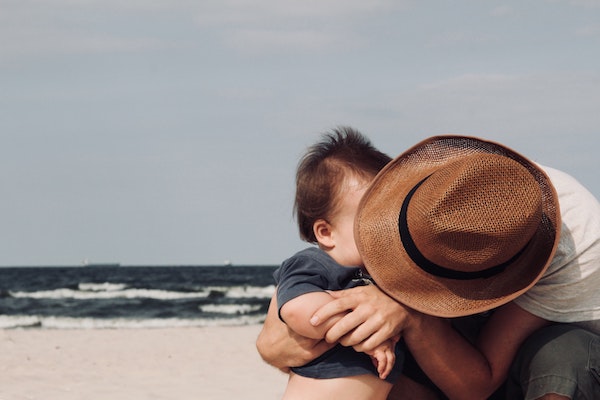-
Menu
-
Complementos Dietéticos
-
Alimentación
- Desayunos
- Harinas
- Bebidas
- Endulzantes
- Conservas
- Mieles y Mermeladas
- Frutos Secos y Snacks
- Bebes
- Comidas Preparadas
- Postres
- Zumos
- Salsas y Condimentos
- Pastas y Cereales
- Chocolates
- Embutidos y Pates
- Pan y Pasteleria
- Legumbres Verduras y Semillas
- Celiacos
- Productos para Alérgicos Leche y Huevo
- Macrobiotica
- Refrigerado
- Congelado
- Superalimentos
- Cosmética
- Infusiones
- Inciensos
-
Suplementos
- Adelgazantes
- Mamas y Bebes
- Infusiones y Plantas
- Mascotas - Animales
- Hogar y Limpieza
- Espagiria
- Carteleria
- Formulas Chinas
-
Complementos Dietéticos
-
Complementos Dietéticos
-
Suplementos
- Adelgazantes
-
Alimentación
- Desayunos
- Harinas
- Bebidas
- Endulzantes
- Conservas
- Mieles y Mermeladas
- Frutos Secos y Snacks
- Bebes
- Comidas Preparadas
- Postres
- Zumos
- Salsas y Condimentos
- Pastas y Cereales
- Chocolates
- Embutidos y Pates
- Pan y Pasteleria
- Legumbres Verduras y Semillas
- Celiacos
- Productos para Alérgicos Leche y Huevo
- Macrobiotica
- Refrigerado
- Congelado
- Superalimentos
- Cosmética
- Infusiones
- Inciensos
- Hogar y Limpieza
- Espagiria
Take care of the hydration of your nursing baby

Caring for your baby's hydration at any time is very important. For that reason, we explain how you can do it, as well as detect the clearest signals that will tell you when you may be dehydrated to remedy it. Do not miss it!
Keep your baby well hydrated at all times
Newborn babies have a higher percentage of fluid in the body than adults, around 75%. Therefore, you must be aware of controlling this amount so that your body works perfectly. Babies can become dehydrated dangerously fast. To know if your child is suffering from dehydration, be aware of these signs:
• Your lips and mouth are dry.
• When she cries, tears do not come out.
• If you notice that you do not have much energy and are somewhat lethargic.
• It has dark yellow urine and it smells much stronger than usual.
• You are six hours or more without wetting the diaper.
In addition, there are clear signs that show you could be severely dehydrated, such as:
• Have visibly sunken eyes.
• Being sleepy or excessively nervous.
• The space in your head where bones have not yet joined, the fontanelle is sunken.
• Have cold, blotchy hands and feet.
If you believe that your baby, due to this evidence, is in danger of suffering from severe dehydration, take him to the emergency room immediately, since it is very likely that he should receive fluids by intravenous tube until he is hydrated again.
If you do not think you can have severe dehydration, call your doctor for advice. In the event that your baby is less than three months old, he may recommend that you give him breast milk and feed him frequently. If he is older, he may advise you to give him a special liquid, in order to replace the amount of water and salts he has lost, although it is usually enough for him to drink mineral water. In any case, always follow the doctor's instructions.
Babies who are between zero and six months of age are exclusively fed by artificial feeding or breast milk. Experts advise that these children consume about 700 milliliters a day. However, when they already have between six and twelve months, the water will also derive from solid foods, not only drinks, which will be incorporated into complementary food. It is recommended that children take between 900 and 1000 milliliters a day. Of these, 60 or 70% should come from liquids themselves, whether water, natural fruit juices and milk, both maternal and formula.
If your baby refuses to drink, you may be suffering from a sore throat or any other discomfort, such as hand-foot-mouth disease. This disease causes your baby to have fungus or canker sores on his hands, feet and mouth. They can cause a lot of pain and sometimes children stop drinking. If your baby is less than six months old, ask your doctor how you should act.
RECENT POSTS
- Is it good for our body to take collagen?
- Male natural cosmetics is a trend
- Activate your metabolism by consuming green coffee
BLOG CATEGORIES
TAG CLOUD
- Allergies
- Antioxidants
- Aphodisiac Infusions
- Baby development
- Beauty
- Choresterol
- Cleaning
- Cold
- Cold Weather
- Depurative
- Digestive system
- Ecological cleaning
- Essential oils
- Exams
- Female fertility
- For men
- Hair care
- Hair loss
- Home
- Hydration
- Hygiene
- Incenses
- Infant Feeding
- Inmune system
- Inner Wellbeing
- Lifestyle
- Make-up
- Male fertility
- Memory
- Muscles
- Natural cosmetics
- Natural scents
- Pregnancy
- QSI Natural News
- Relaxing Infusions
- Relaxing teas
- Resting
- Sexuality
- Skin care
- Solar creams
- Sport
- Students
- Superfoods
- Urinary track
- Vegan
- Vegetable oils
- Vitamins
- Weight control
- Well-being

Add a new comment